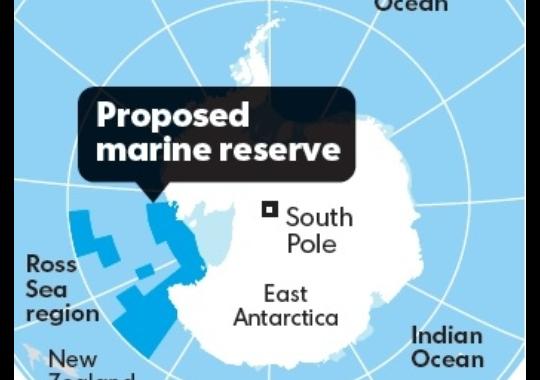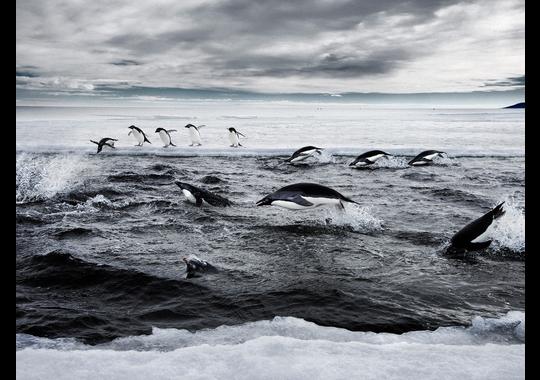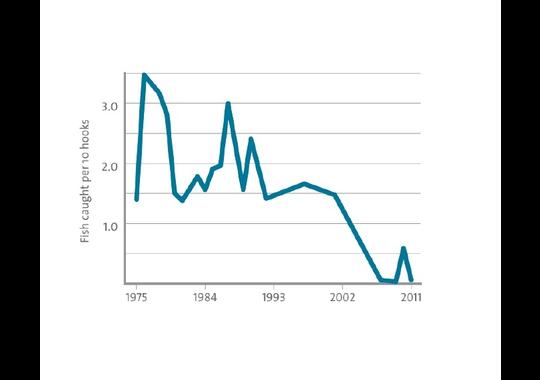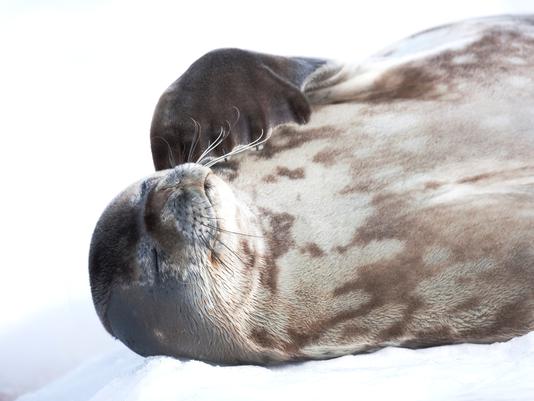World's largest marine reserve weighed for Antarctica
A multinational meeting July 11-16 could bring the ocean decision of the decade by creating protections in the Ross Sea and other parts of Antarctica’s Southern Ocean. Credit: Pew Charitable Trusts
An effort to create the world's largest marine reserve off Antarctica as a haven for seals, whales, penguins and diminishing fish populations comes up for a vote this week at an international meeting.
Capping an Antarctic Treaty conservation organization meeting in Bremerhaven, Germany, this week are two proposals to ban fishing and set aside marine research zones in large swaths of the frigid Southern Ocean.

A Ross Sea marine reserve has been proposed off the Antarctic coast.(Photo: ESRI / Janet Loehrke, USA TODAY)
"Antarctica is a special place, both for wildlife and as a place where the world can work together," says Tony Haymet, former director of the Scripps Institution of Oceanography at the University of California, San Diego. Less than 2% of the world's ocean waters are set aside as marine reserves, Haymet says, making the Antarctic proposals important as models of international cooperation.
On July 16, the members of the Commission for the Conservation of Antarctic Marine Living Resources (CCAMLR) -- 24 nations and the European Union -- will vote on two proposals for marine reserves, each one bigger in size than the state of Alaska. A U.S.-New Zealand one would set aside roughly 876,000 square miles in and around the frozen Ross Sea, a home for penguin nurseries and source of nutrients throughout the Pacific Ocean. A second European and Australian one would set aside a more than 700,000-square-mile string of protected marine reserves around Eastern Antarctica.

Adelie penguins explode from the water like corks, crashing onto the floating ice.(Photo: John Weller / Pew Charitable Trusts)
Either reserve would be larger than a 210,000-square-mile no-fishing marine reserve in the Indian Ocean declared by the United Kingdom in 2010, and together would exceed Australia's 1.1-million-square-mile network of marine reserves.
"This could be a historic first step leading to more marine reserves in other places," says the State Department's Evan Bloom, lead U.S.negotiator at the CCAMLR meeting this week. Governed by a 1959 treaty that designates the frozen continent as a military-free center of scientific research, Antarctica has long been a laboratory for international agreement, Bloom says. The proposed marine reserves are the latest example. "If we can't do it in Antarctica, it raises the question of where else we could create the large reserves elsewhere that many people would like to see," he says.

Number of toothfish caught per hook at Antarctica's McMurdo Sound station 1975 - 2011.(Photo: Lenfest Ocean Program)
Frozen over during much of the year, the proposed Ross Sea reserve would protect a home of Adelie and emperor penguins, minke whales and crabeater seals. It is also the spawning and feeding grounds of the Antarctic toothfish, or Chilean sea bass, widely fished by commercial vessels since 1996. A Fish and Fisheries journal last year reported toothfish sizes caught at Antarctica's McMurdo Sound research station have "decreased dramatically" as a result. Some parts of the reserve would be "research zones" where limited fishing could take place for scientific reasons and to track the effects of warming ocean waters on the marine habitat.
The reserve isn't a done deal, however, says Andrea Kavanagh, director of Southern Ocean sanctuaries for the Pew Charitable Trusts in Washington, D.C. The current CCAMLR meeting represents a second chance for the reserves, called after they failed to garner the required unanimous support in an October meeting. "Russia is the big unknown, whether they will decide to support the reserve this time," Kavanagh says. At the past meeting, China and Russia voiced the most concern about the reserves, along with other nations with large commercial fishing industries.
Bloom expressed confidence in the Ross Sea proposal's chances and support for the Australian-European one. "However, this is a negotiation, and there will be discussions to see what everyone's interests are, so we will have to see how it goes," he says. "There will be a vote." Some discussions have centered on setting expiration or renewal dates for the Ross Sea reserve, with a 2064 review date proposed.
"There will still be plenty of Antarctic Ocean not included in these proposed reserves to go around," Haymet says. "Scientists want a chance to study what is there before it is all gone."










